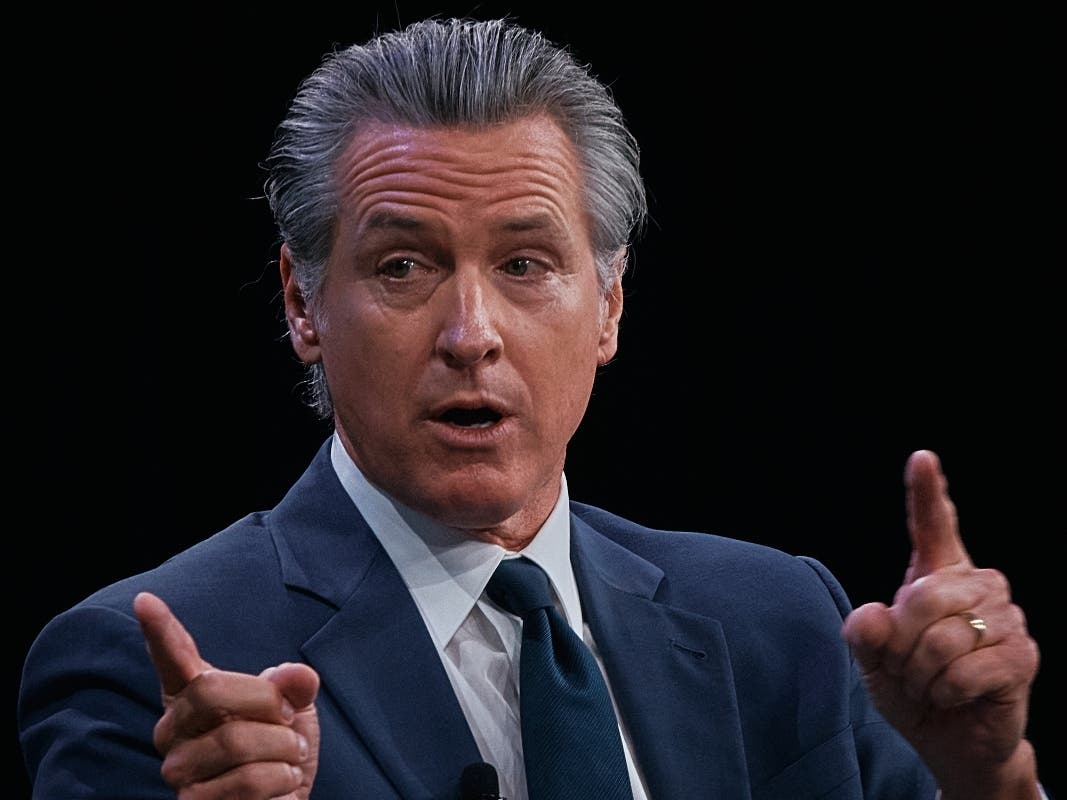Gov. Gavin Newsom is working his way through dozens of bills that have arrived at his desk after the last legislative session, and he has less than two weeks to either sign or veto them.
California’s governor has moved quickly through a stack of legislation in recent days, most notably approving a landmark bill on Monday aimed at setting boundaries around artificial intelligence.
In 2024, Newsom vetoed close to 16 percent of the 1,200 measures lawmakers approved that year — a higher-than-usual rate, according to CalMatters. He struck down about 18 percent of the bills sent to his desk in the final stretch of the session alone.
Each veto is accompanied by a formal message in which Newsom outlines his reasoning. The explanations often cite fiscal concerns, redundancy with existing law, or what he views as flawed policy. In some cases, though, the governor blocks legislation due to political controversy or pushback from influential interest groups.
Newsom has until Oct. 12 to decide on a flurry of proposals.
Here’s a look at three bills the governor has already decided to sign into law.
AB 260: Doctors Can Prescribe Abortion Meds Anonymously
In the latest effort to shield abortion access in California, Newsom signed AB 260, which will allow doctors to prescribe abortion care medication anonymously. The law will also protect them from lawsuits or disciplinary action.
“California stands for a woman’s right to choose,” Newsom said in a statement. “I’m proud to sign these bills to protect access to essential health care and shield patients and health care providers in the face of amplified attacks on the fundamental right to reproductive freedom.”
The measure guarantees that health insurance plans regulated by California will continue to cover abortion medications such as mifepristone, even if federal approval is revoked. It also allows pharmacists to dispense the drugs without including identifying details on the packaging and protects attorneys who help patients in other states obtain reproductive care from discipline by the State Bar.
Its passage comes three years after the U.S. Supreme Court’s decision in Dobbs v. Jackson, which overturned Roe v. Wade and ended constitutional protections for abortion rights.
READ MORE: CA Doctors Can Prescribe Abortion Meds Anonymously Under New Law
SB 627: Law Officers Banned From Wearing Masks On Duty
A controversial bill at the federal level that was signed by Newsom last week will ban law enforcement officers and federal agents in California from wearing face masks and otherwise covering their faces.
Authored by Sen. Scott Wiener (D-San Francisco), the law was signed along with a suite of other bills to protect families from what Newsom called President Donald Trump’s “secret police.”
“Masking discredits law enforcement and disconnects officers from the communities they serve — making all of us less safe,” Jason P. Houser, Former Chief of Staff, U.S. Immigration and Customs Enforcement, wrote in a statement.
However, shortly after the bill was signed, U.S. Homeland Security fired back, calling the move “unconstitutional.” It announced that the federal government will no abide by the rule.
“Governor Gavin Newsom is fanning the flames of division, hatred and dehumanization of our law enforcement,” Assistant Secretary Tricia McLaughlin wrote in a statement on Monday. “To be crystal clear: we will not abide by Newsom’s unconstitutional ban.”
READ MORE: Federal Government Will ‘Not Abide’ By CA’s Law Banning ICE From Wearing Masks
SB53: CA Enacts First-In-Nation AI Safety Law
The Golden State just became the first in the U.S. to sign a bill regulating artificial intelligence.
SB53 aims to prevent companies and people from using powerful artificial intelligence models for potentially catastrophic motives like building a bioweapon or shutting down a bank system.
“California has proven that we can establish regulations to protect our communities while also ensuring that the growing AI industry continues to thrive. This legislation strikes that balance,” Newsom wrote in a statement.
“Catastrophic risk” is defined as an event that would incur at least $1 billion in damage or more than 50 injuries or deaths.
The new law will force AI companies to implement and disclose publicly safety protocols. The rules are designed to cover AI systems if they meet a “frontier” threshold that signals they run on a huge amount of computing power.
Companies will also have to report to the state any critical safety incidents within 15 days. The law establishes whistleblower protections for AI workers and creates a public cloud for researchers. It includes a fine of $1 million per violation.
Some tech companies oppose the new law, arguing that AI regulation should happen at the federal level. Meanwhile, Anthropic, which has created a ChatGPT adjacent AI assistant called Claude, calls the law a practical safeguard that makes official the safety practices many companies are already doing.
The Associated Press contributed to this report.
Get more local news delivered straight to your inbox. Sign up for free Patch newsletters and alerts.
